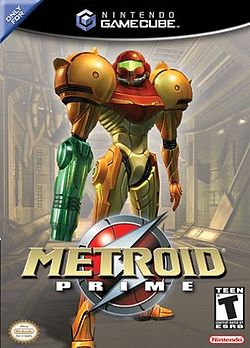 Sometimes, a well-known established franchise has to grow and evolve, despite the commercial and critically acclaimed success of the franchise and games as a whole. Changing the core gameplay mechanics or feeling of a game can be a death sentence for a series, as fans usually have deep-seeded love and admiration for the principle blueprint of what makes the game, and the franchise, so popular in the first place. Even if the change is for the better and meant to take the franchise into the future, fans are fans and don't normally do well with change. They just don't understand change, even if the reasons are fully explained and justified. It's hard for people to accept that something they know and love is now different, and struggle to embrace and cling to the new game as it is, in the new light and vision of the developers. Even worse than just change, when an already established franchise changes hands and is gift-wrapped for a new developer to handle, meltdowns happen all over. Very rarely can a video game series endure a change of the core mechanics of the game and visual styles by a new and different developer as well. Of course, Nintendo has no fear when it comes to going against conventional trends, thinking outside of the box and pretty much marching to the beat of their own drum. They got away with it with the Zelda series, although gamers were pretty used to each game being different anyway. Mario is Mario, and fans just saw each new game as an upgrade to the franchise, not a change. So they looked at Metroid and rolled the dice. And boy did they win big with their gamble. They banked on gamers wanting a change of perspective, from behind the curtain and on screen as well. They handed the Metroid franchise over to Retro Studios, who was an established and highly successful studio that worked closely with Nintendo, but who had never touched the Metroid series. Nintendo had kept this series close to the vest, but finally decided to hand it off to a third-party developer in hopes of hitting a home run. Thankfully, Retro saw the franchise and the story of Samus from a different point of view, and realized that the adventures of this amazing bounty hunter was better told from the first person point of view. They bet on gamers embracing a First Person Shooter style of game, and they were right. Funny thing is, Nintendo didn't see the game as a FPS as everyone knows the genre to be. They wanted to drive home the point of while Samus is a bounty hunter, playing as her isn't as simple as run-and-gun. They made sure that gamers still understood that while you played the game from behind the yellow visor now, you're still responsible for exploration, more so now than ever before. Sure, there is shooting and all that stuff, but getting lost, finding power-ups and retracing your steps throughout an alien landscape is really what the game is all about, and always has been. They called this game a First Person Adventure game. Of course. Sometimes even change can't eliminate the established roots. Retro did a phenomenal job with this game and definitely didn't drop the ball. Playing the game again only cements my long lasting love for this game, and the direction the series went. As far as story goes, Retro placed this Prime trilogy smack-dab in the middle of Metroid and Metroid II, giving them all the wiggle room they needed to pack in as much plot as they needed to fill in the story they were trying to tell. This game came out on the GameCube on the same day as Fusion did for the Game Boy Advance. While both games altered the gameplay in some way, Prime almost felt like an entirely new franchise with the same characters. The old Metroid games were awesome, believe me, but the new perspective of the franchise took Samus to heights she could only dream of before. You know, if Samus could actually dream. I'm sure there's some fan-fiction about that somewhere, right?
0 Comments
Leave a Reply. |
Details
Gamer Tags
XBLA = The Noyse
PSN = the_noyse NNID = The Noyse 3DS F.C. = 3007-8109-2329 STEAM = TheNoyse FEEL FREE TO FRIEND ME! Stats
Games played for project : 365 Archives
February 2014
Categories
All
|

 RSS Feed
RSS Feed
